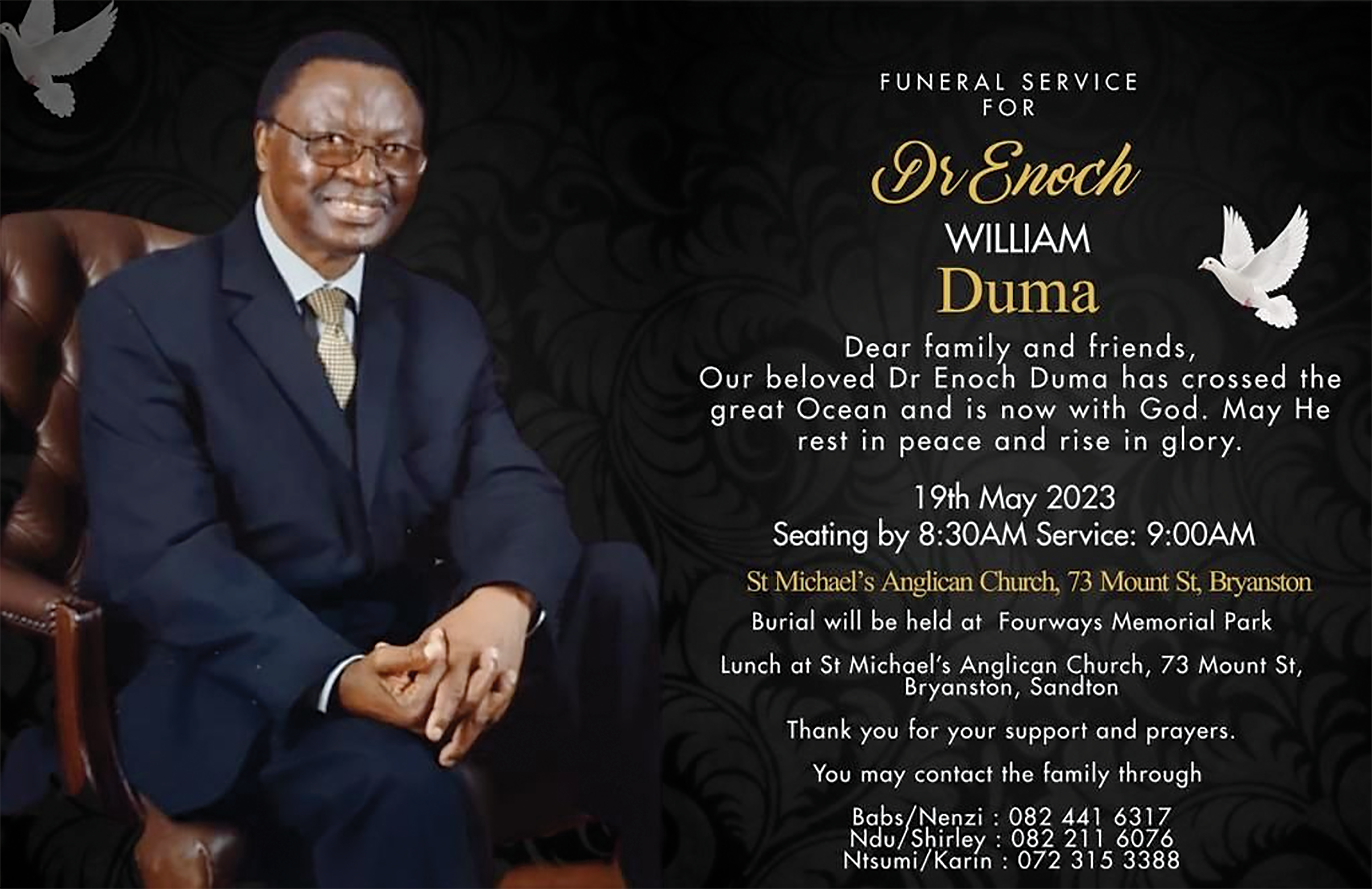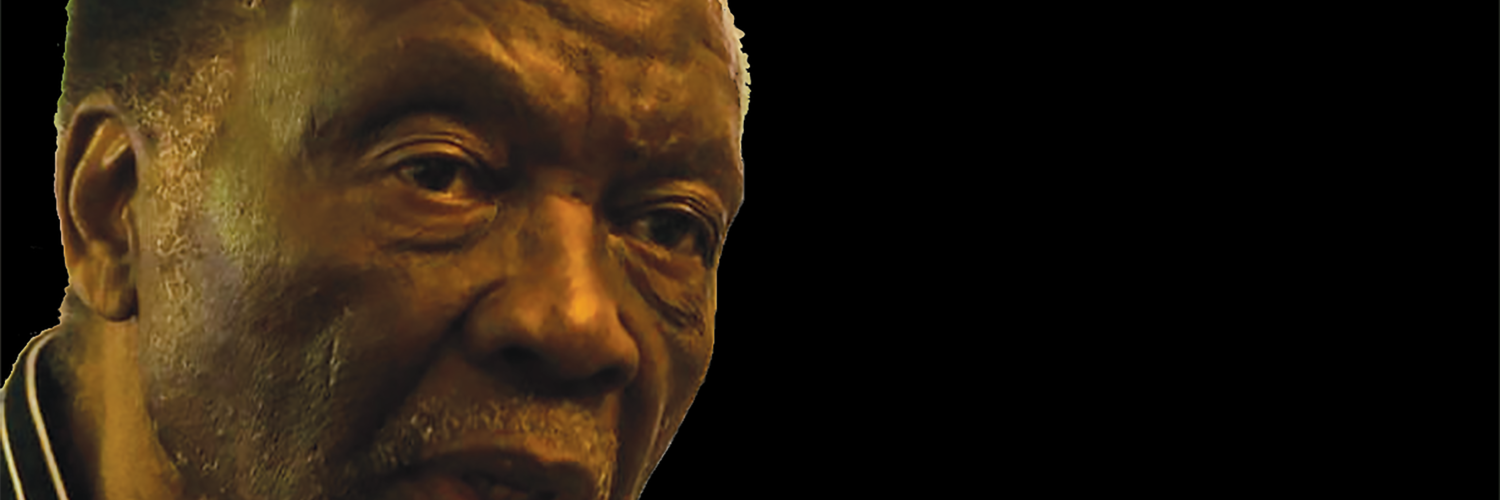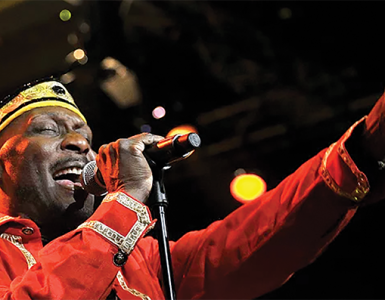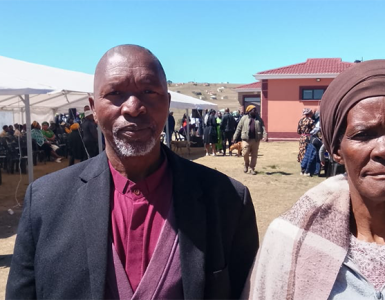DEDICATED: Former uMkhonto we Sizwe operative and ANC stalwart, who passed away last week, buried today.
By Mathatha Tsedu
A detainee who spends time in solitary confinement devises ways of surviving. Some ensure they have painkillers which they swallow before they enter the den of torture. Some create communication means amongst themselves to share information about the torture and what the police already knew.
The latter helps those still going to be tortured to know what one should not deny because the sole purpose of refusing to give information is to defend the gains of struggle. If they already know what is the point of suffering. Still others go the dangerous route of befriending some of the cops. One has to be sharp to do this because if you miscalculate, you can fall into a dangerous trap.
Enoch Duma, former journalist, academic and boxing fanatic, used both during his detention in 1977 after he was detained under the terrorism Act and kept in jail for nine months, ending in a trial and an acquittal.
He had been detained with amongst others Aitken Ramudzuli and Aifheli John Thabo, who were not so lucky and spent years on Robben Island.
Duma(89) died peacefully last Wednesday at his home in Roodepoort, surrounded by his daughters and grandchildren. He had been unwell for some time. He will be buried on Friday at the Fourway Memorial Park after a service at the St Michaels’s Anglican Church in Bryanston.
Duma had started freelancing immediately in 1962 whilst still in Durban, where he was born and raised. He later trekked to Johannesburg to follow his dream and, just like all black journalists of that time, navigated between the then Bantu World (later just The World), Rand Daily Mail, Drum, Sunday Times and Golden City Post.
The quite, soft spoken but very deep thinker was subjected to the pass laws of the time and the migratory laws that prohibited blacks from moving out of the ethnic rural reserves, to any city without permission. That permission was difficult to obtain and entailed visits to the Commissioner’s office to make the case why one should be allowed to stay in an urban area. If granted such permission, one had to be subjected to demeaning health inspection where adult men would queue naked, each holding their clothes and be scrutinized by a white doctor who feigned a medical inspection.
Duma went through all these to be allowed to stay in Johannesburg. It marked his attitude to white rule and turned him into an underground operative of the then banned African National Congress (ANC). Duma used his journalism to highlight both the plight and resistance of black people under minority racist rule. His stories included the daily pass raids during which hundreds of so-called illegal migrants from the rural areas who did not have permits to be in urban areas were arrested.
He documented the raids in townships, where municipal police, ala JMPD, would arrest black men and women and sometimes just tie them to poles to wait for police trucks to load them and take them to prison. The crimes ranged from permits to brewing African beer of all sorts. It was about these arrests that Miriam Makeba was to sing in her song Khauleza Mama.
Duma documented these but also realized that whilst this was serving to raise the consciousness of the people, the “real” struggle needed to be prosecuted to overthrow the brutal settler regime that had made Black people foreigners in their own land.
The emergence of Black Consciousness in 1968 and the militant organisations it spawned touched Duma as by 1973 the Union of Black Journalists was formed. He was elected to lead the biggest region, Southern Transvaal and thus served in the national executive. The arrival of the UBJ, later banned in 1977, was to change the character of black journalism with more coverage of political developments by papers such as The World and spilled into the white oriented Sunday Times where Duma was then working for its Extra edition aimed at blacks.
He also joined the ANC and it was as part of a cell of Umkhonto we Sizwe operating in Soweto that he was arrested and tortured horribly at the notorious John Vorster Square, now Johannesburg Central.
He told the story of his detention to his family that the police had wanted names and addresses of friends and where they were hiding. He had refused to give this information and was tortured for nine months at John Vorster Square. As part of the torture, he was denied sleep for days on end and said the police would try to get information from him while he was tired.
Through an ingenious underground system, he made contact with friends and family on the outside. Having failed to either break him or turn him into a state witness, he was charged with subversion under Section 6 of the Terrorism Act and was represented by the now late famous Advocate George Bizos. He was found not guilty and discharged at the end of nine months of incarceration.
The Special Branch or Security Police were unhappy with his release and he got word from a white police woman that he should leave as he was about to be arrested again. The befriending of a police officer was paying off.
Thus began the life of a wandering soul as he bundled his few belongings, left his wife and kids in Dobsonville, Soweto, and fled to Lesotho where on his third and last day, survived an attempt to capture him and return him to SA. It was the late MK commander Chris Hani who arranged his departure from Lesotho and flew him to Botswana where he again only stayed for three days before flying to London, England, without a passport.
It was here, with the assistance of the ANC, that this three days-in-a-country exilee was given travel documents quickly and he immediately left for New York, USA where the Lutheran Church looked after him.
By 1979, he had moved to St Paul in the state of Minnesota his family to joined him in 1980. He studied History at the University of Minnesota from 1981 and graduated in 1983 with a BA. Two years later he received his MA in Journalism and Mass Communication, cum laude.
The family moved to Oakland, California in 1986 and he along with the entire family continued to work in the liberation movement, mobilising international people and Americans in particular, about the atrocities being committed in South Africa against black people. They called for sanctions and boycotts against SA and a number of international companies such as Coca Cola, IBM, and Kodak became targets for disinvestment.
From 1986-1992 he was involved with student groups. He served as the president of Perspectives on South Africa (POSA) which conducted public awareness engagements, advocated for the freedom of South Africa and strengthening of the anti-apartheid movement.
When Nelson Mandela was released from prison in 1990, marking a new dawn for South Africans in exile, Duma chose to stay behind and initially pushed that sanctions be retained until a new democratic government was in place. He enrolled for a Doctorate in Philosophy at the Western Institute for Social Research and graduated in 1997.
After receiving his PhD, he worked in various Community Colleges across Northern California and even received the top award of “Teacher of the Year”, teaching Journalism, English, Mass Media, Communication and Politics. He taught until 2001 when the family returned to South Africa.
Back home he also served as a volunteer teacher to ready matriculants for their exams.
This second born child of the Baptist Preacher Mfana William Duma and Grace Duma (Ma Mkhize) was born on May 29, 1934 in Durban. He was raised in Durban City until his family was forcibly moved to Lamontville Township in 1939 under the segregationist colonial laws.
He matriculated in 1952 from Sastri College in Durban City. After matric, he started writing as a freelancer for Golden City Post, a nationwide paper, from 1960-1962. In 1962, he moved to Johannesburg and married Kitty Maureen nee Gwele who died in 2019. They were blessed with four daughters: Clarry (late), Babs, Ndu and Ntsumi. He died on May 10.
(Additional information by Ntsumi Duma)mi Duma).

Published on the 99th Edition































